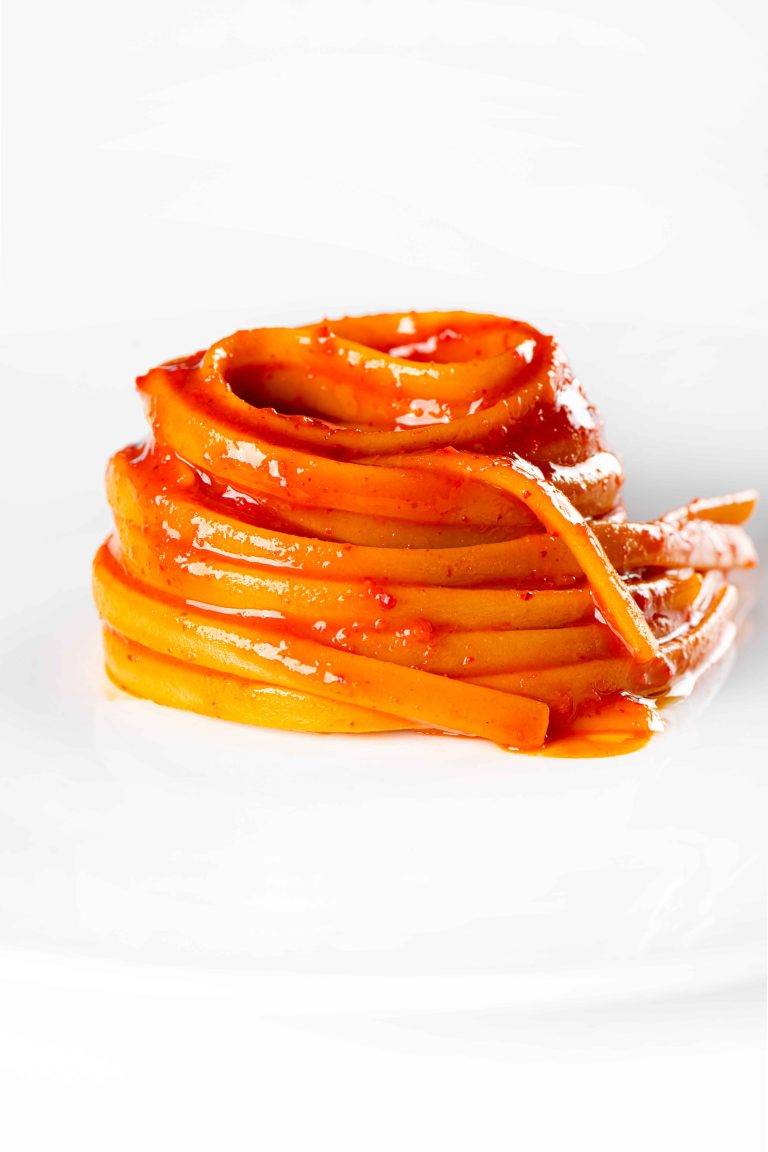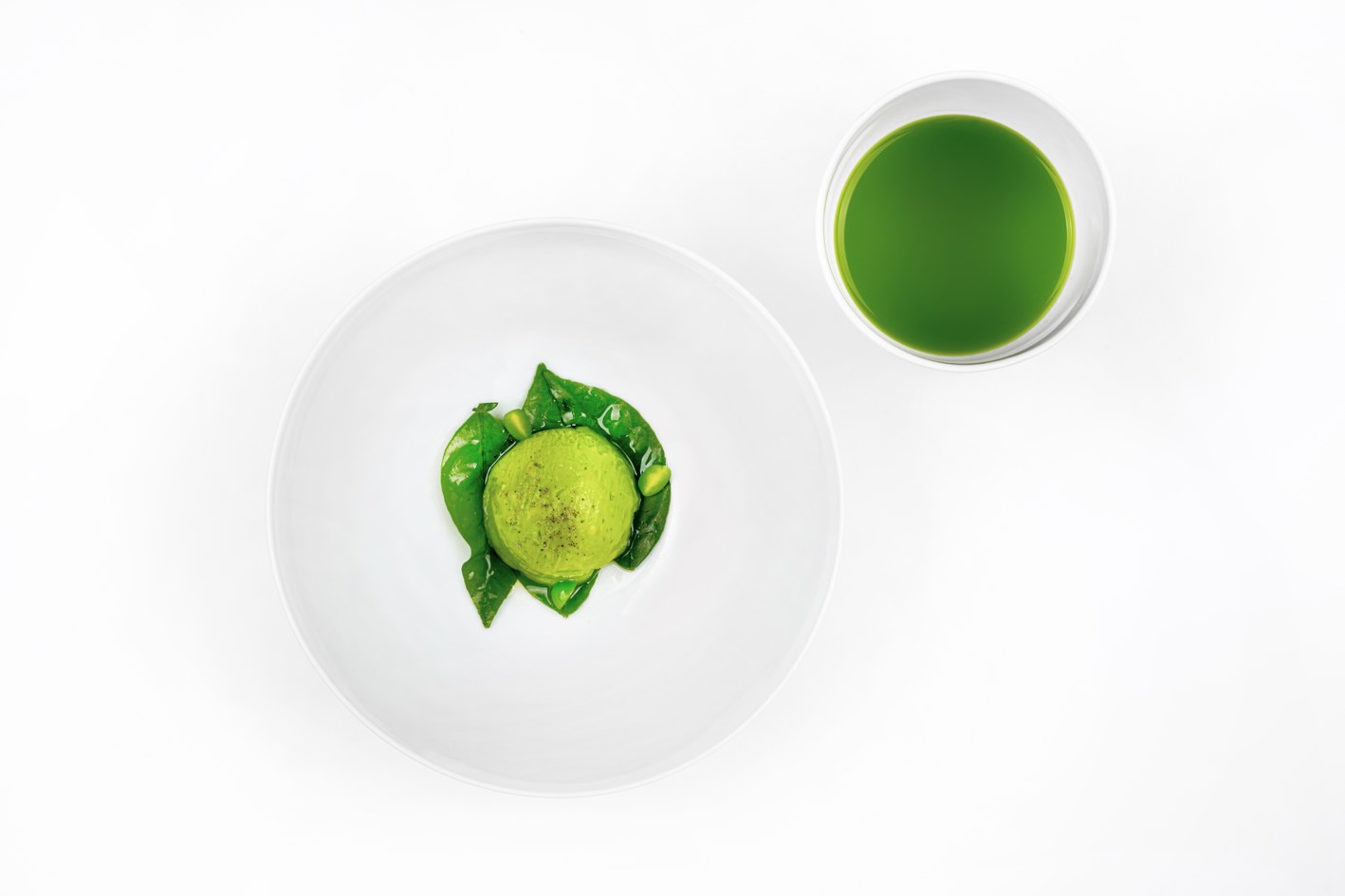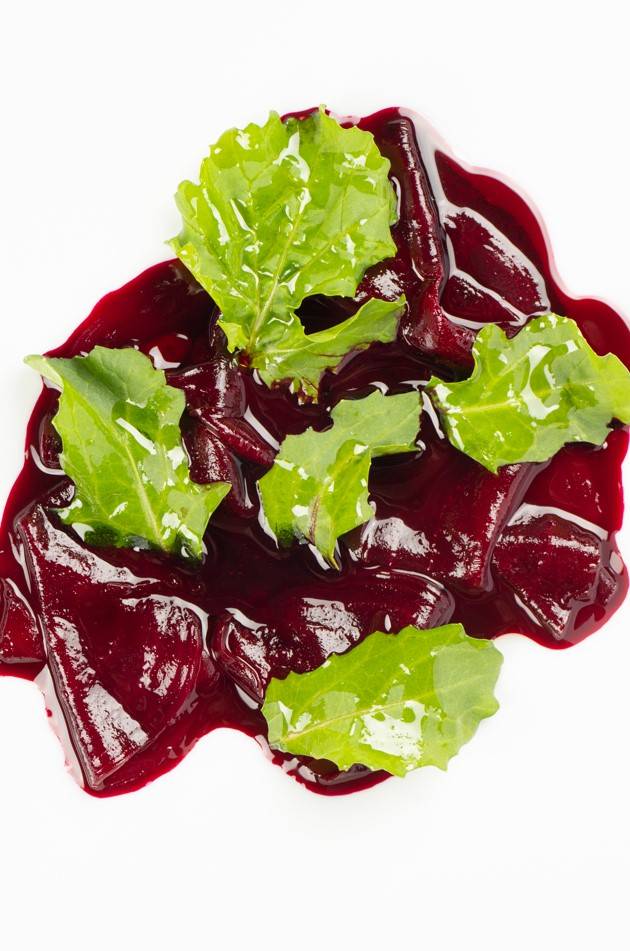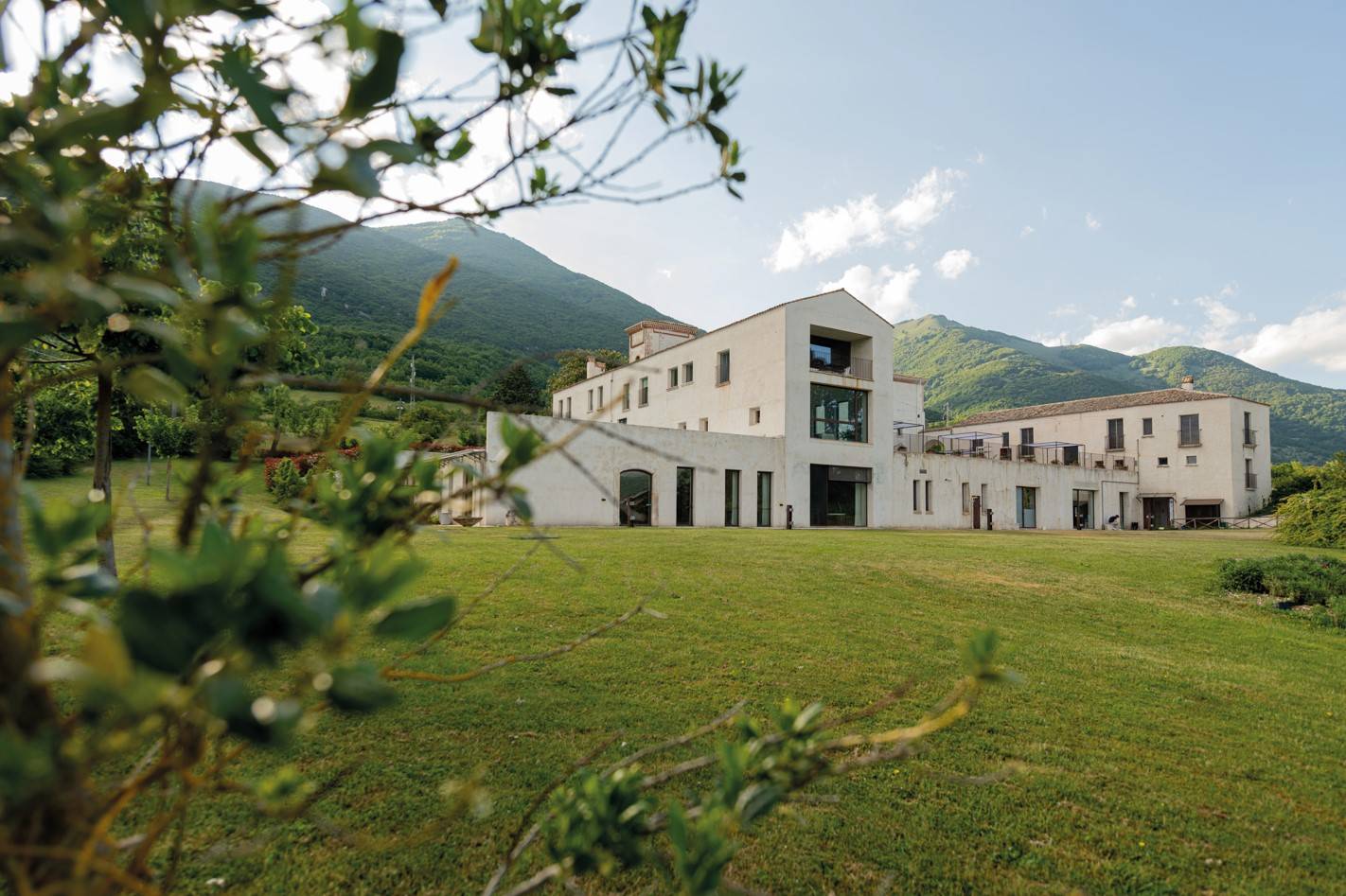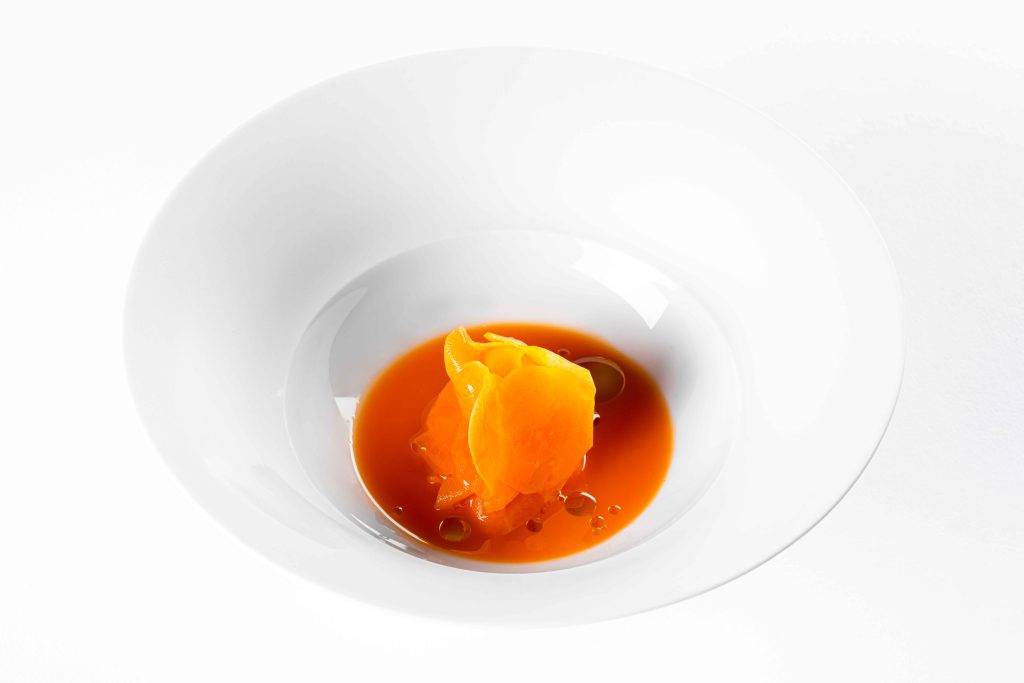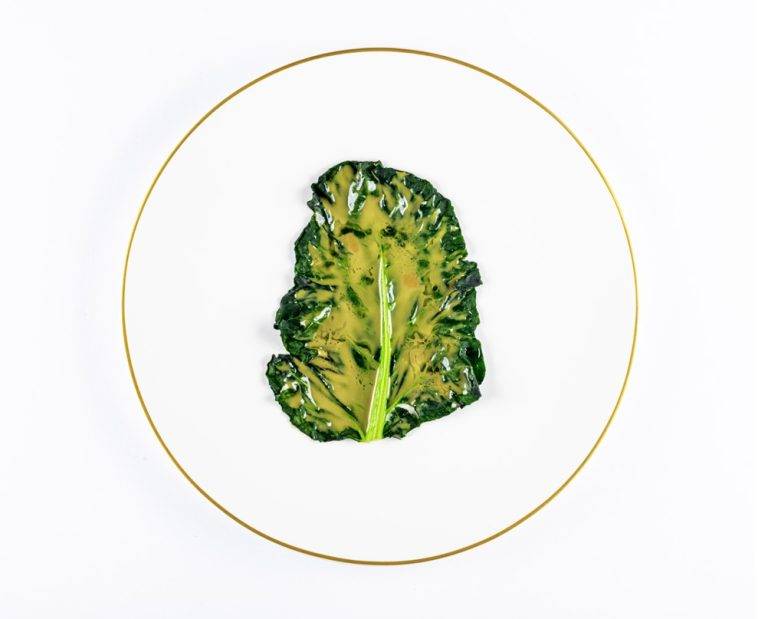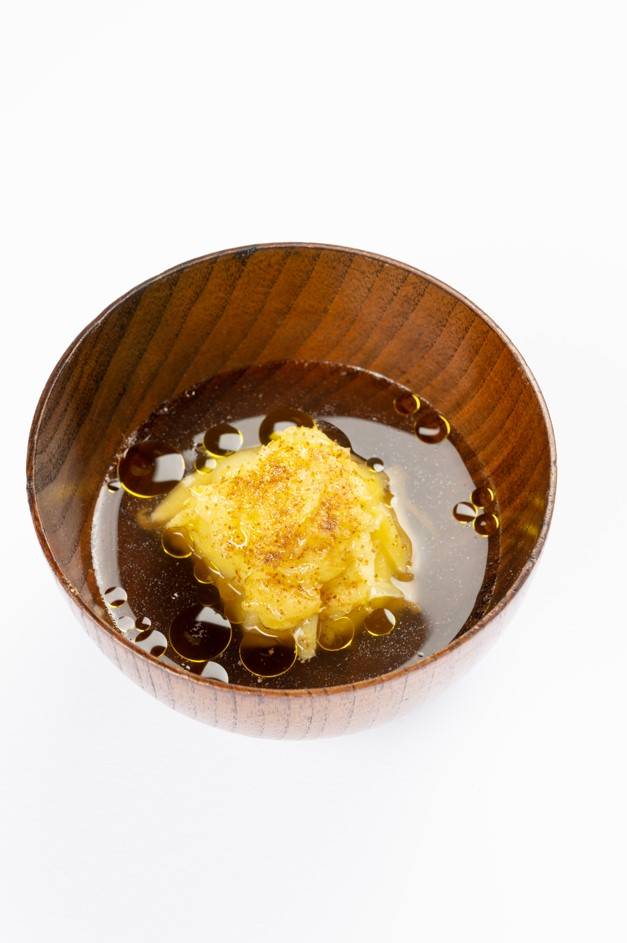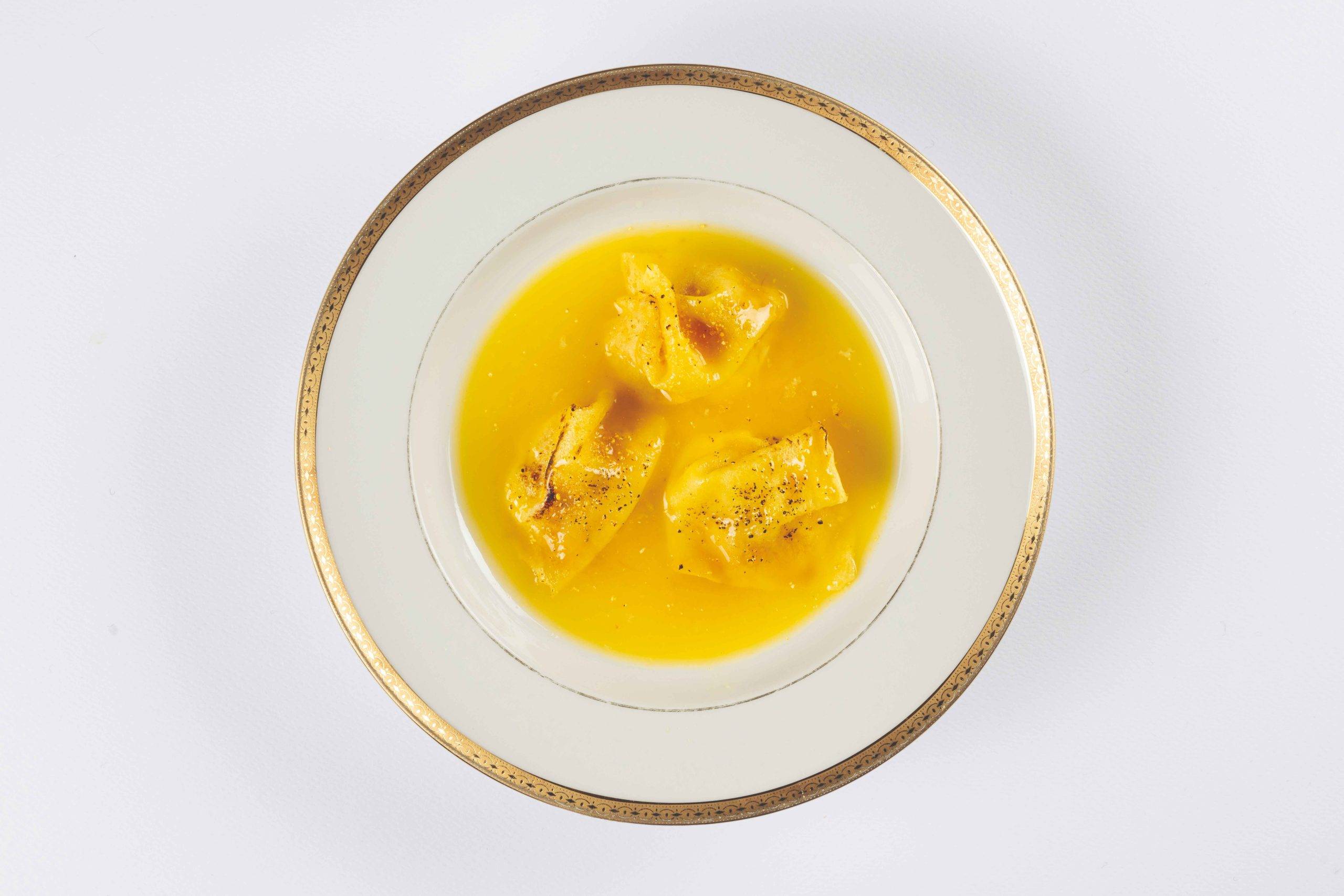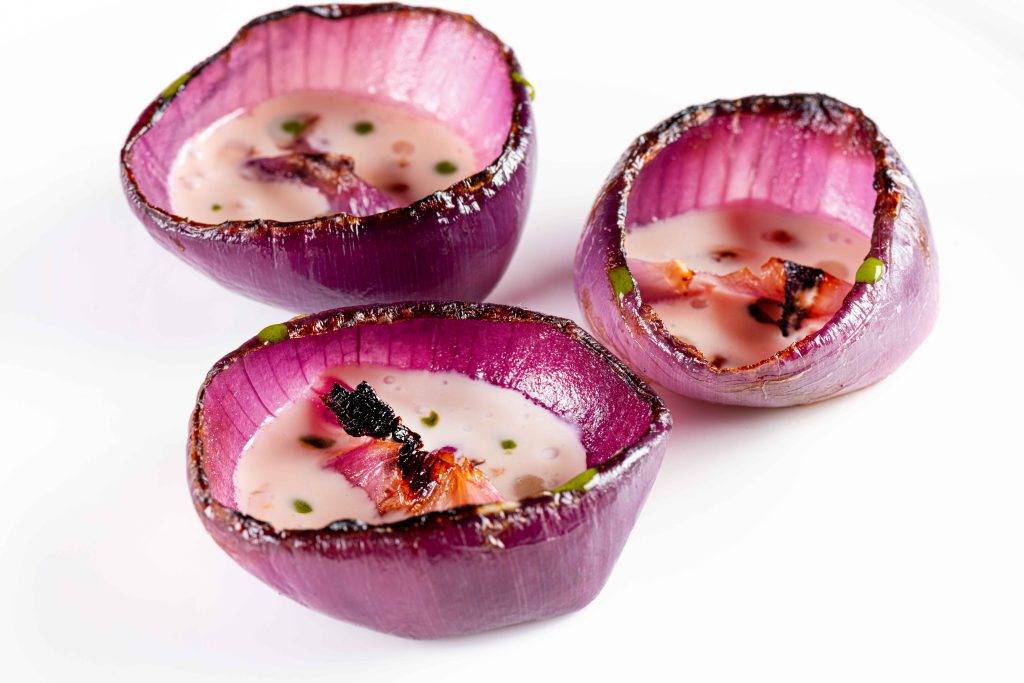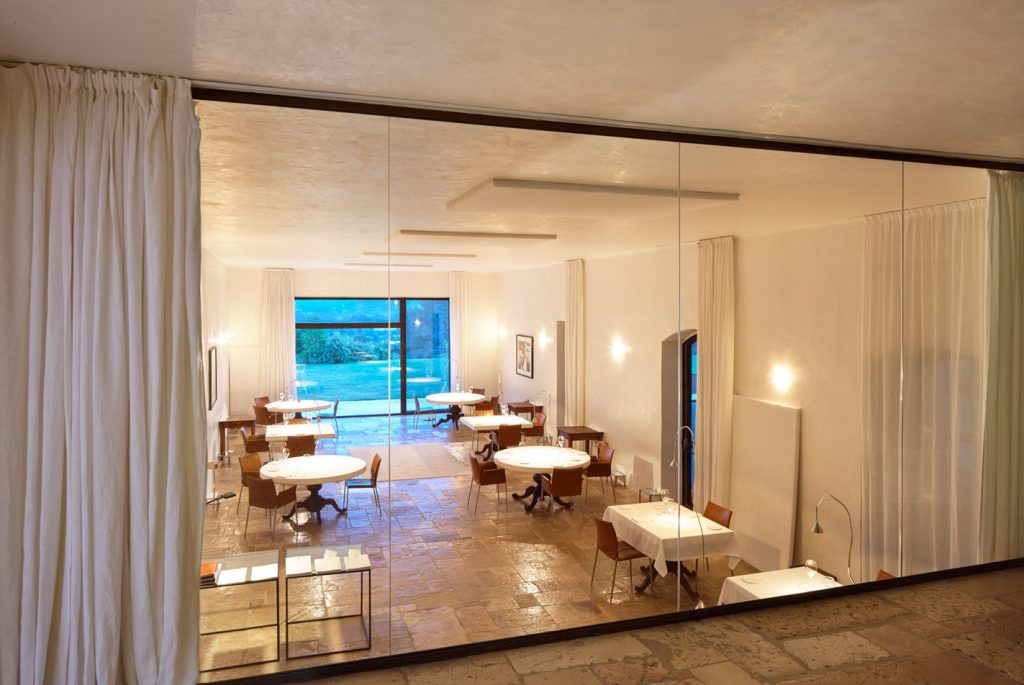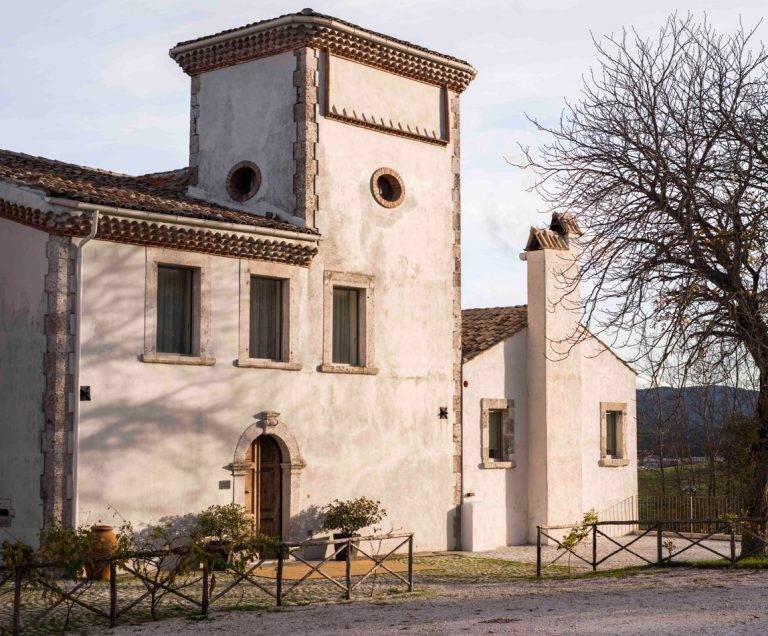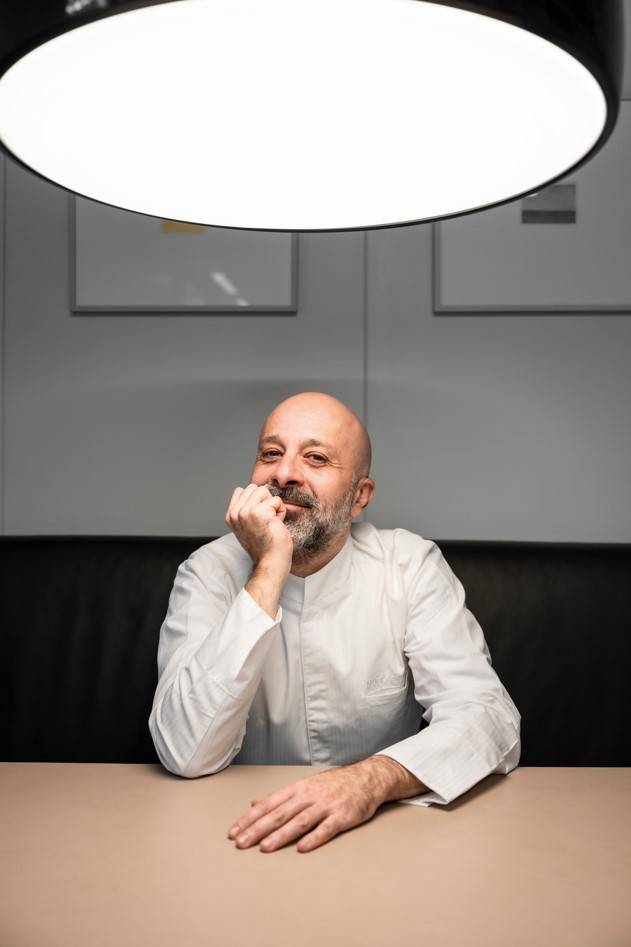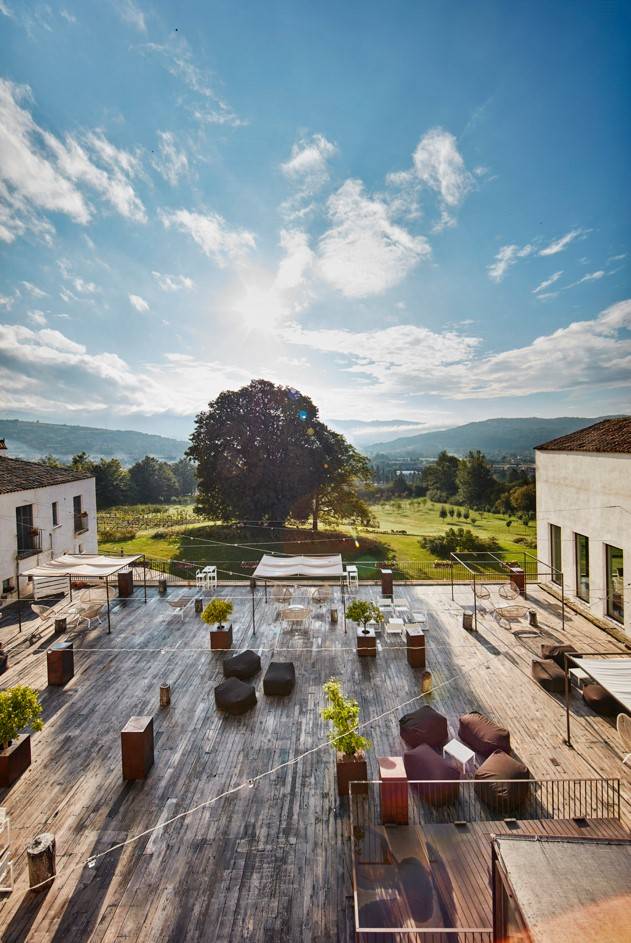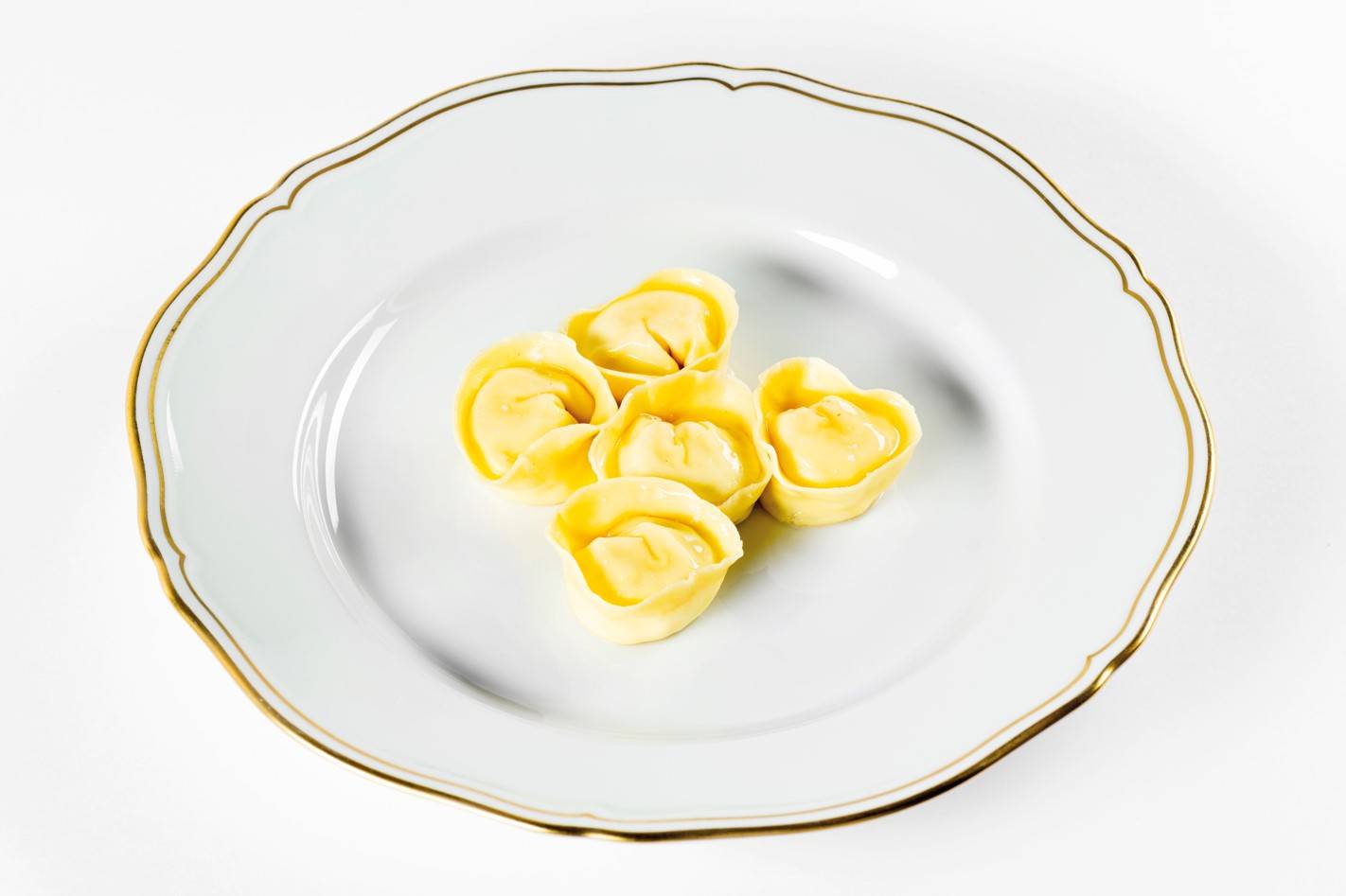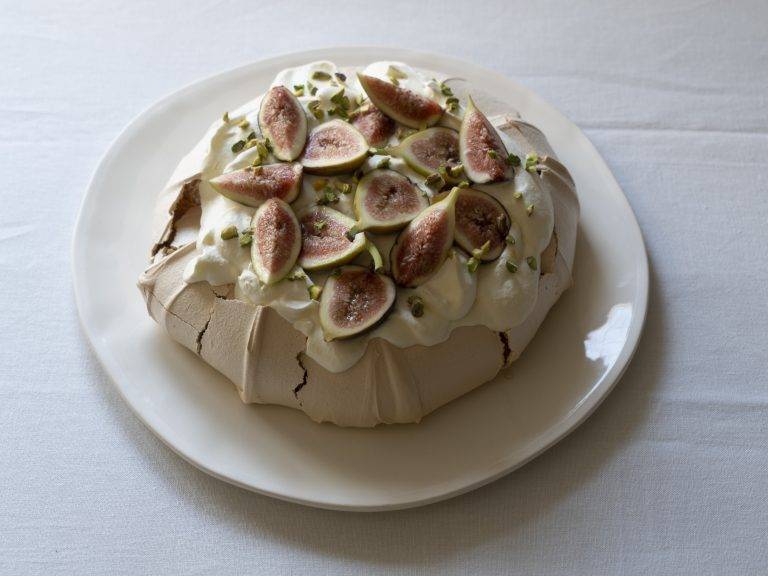Although Abruzzo-born Niko Romito never had any formal chef education or training, his fervour for the culinary arts has always been in his DNA. His father owned a pastry shop, which was subsequently transformed into a trattoria, and Niko has fond memories of his youth imbued with the fragrances and flavours of traditional Italian cuisine. And it’s this heritage of Abruzzo gastronomic culture that has remained a significant source of inspiration for Niko throughout his twenty-plus-year career, especially since he took over the running of the family restaurant with his sister Cristiana.
“Restaurant Reale used to be our family restaurant in Rivisondoli (Abruzzo), serving local comfort food. I started running it with Cristiana in 2000 when my father died. At that time, I had no experience and no culinary education, but it quickly became my deepest passion. In the beginning, I was mainly working on Abruzzo traditional recipes, with new attention to the cooking techniques that allowed me to enhance the single ingredients. We often think that traditional dishes are immutable, but I’ve always believed that they have to evolve together with our culture and knowledge. At that time, Cristiana was also new in the business, but she took a sommelier and service diploma and soon developed her own idea of hospitality and dining service.
“Over the years, the intense research on raw materials and transformation techniques got deeper, and so did my creativity. Abruzzo soon became a source of inspiration in a broader sense. I still use local products, but I moved on from traditional recipes. I found my own gastronomic language and identity without the influences of a ‘maestro’ or any prior theoretical knowledge. Being a self-taught chef required more sacrifices and determination, but it also gave me much more freedom of thought. In 2007 we got the first Michelin star; in 2009, the second one; and in 2011, we decided to relocate Reale from Rivisondoli to Casadonna, a sixteenth-century former monastery in Castel di Sangro, Italy. Here we could entirely express our idea of beauty, from the cuisine to the furniture, in a harmonious and consistent way. We created an important culinary hub that includes the restaurant, a vocational culinary school (Accademia Niko Romito), a boutique hotel and an experimental vineyard.
“Since 2014, we have had three Michelin stars, and our cuisine has never stopped evolving from there. Today the kitchen of Reale is a centre of creativity, the research hub where all my other projects also take form.
“My cuisine is based on relentless research on raw materials and transformation techniques to get to the inner flavours and textures of the ingredient. It is essential, pure, and apparently simple, but the flavours are always intense and defined. I conceive purity as the ultimate synthesis and in-depth perception of taste. It is the most difficult thing to achieve because it means condensing something very complex in a clear and beautiful form, eliminating what is unnecessary.
“I particularly love to ennoble common product — such as an onion or a carrot — by transforming them into something extraordinary but still simple. I always compose my dishes with very few ingredients but in a multitude of different forms. It’s what I call ‘vertical complexity’: from one ingredient with many different preparations, I put many layers on top of one another. Each layer distils one of the facets of the ingredient’s flavour, and all the layers together magnify that product, revealing an unexpected complexity and depth. I see my cuisine as a lens that allows one to view the raw material in it in a clearer way, also perceiving small details that you couldn’t notice before. It can sound difficult to understand, but when you eat at Reale, you can easily get what I mean. Let’s take Carrot: it’s ‘just’ carrot, but there are thin slices of carrots marinated in their extract, a purée of steamed and grilled carrots, an infused fermented juice and a thick carrot sauce. You immediately recognise the taste of the well-known vegetable, but you also discover flavours that you would never expect. I work a lot on the textures as well, a key to the perception of taste, and I like to build a ‘dynamic equilibrium’ in my dishes, which means that you can find the perfect balance bite after bite.”
Constantly amazed by what surprising tastes and textures can be achieved with the humble vegetable, Niko has pivoted to making vegetables the hero of his cuisine at Reale. It’s the challenge of creating something spectacular with this natural produce, bringing out its most inherent flavour through complex techniques while communicating its immense gastronomic worth, that continues to motivate the chef to reach new heights with plant-based dishes. Over and above this, vegetables are the more sustainable choice, and Niko hopes to revolutionise the culinary industry to move more towards focusing on transforming common ingredients into something exceptional instead of relying on frivolous theatrics and lavish products.
“Since March 2022, our tasting menu has been entirely dedicated to vegetables, while we still offer a few meat and fish dishes à la carte. It is not a sudden change but a natural evolution. I’ve always been challenged by transforming vegetables because they require greater creative effort and millimetric precision. Today I’ve reached the maturity and the knowledge to create fourteen-course tasting menus based only on vegetables that express my cooking philosophy very clearly. We did a lot of research on juice extractions to obtain new vegetable sauces and broths, and we’ve been particularly surprised by what we could get from the salads and leaves, like the broccoli leaf, radicchio, and endive. They can bring a very interesting complexity of taste to a dish. This approach to vegetables is also changing my approach to meat and fish; I give deeper attention to transforming them. In the future, I might reintroduce a few fish or meat elements in the tasting menu, but vegetables will be predominant. At this stage, it was important to transmit a strong message with this vegetable journey.
“I hope to communicate a new, clear and strong message to my guests and to the young chefs that follow me. My aim is not simply to create good dishes; I want to transmit a different approach to the raw material. With the plant-based tasting menu, my aim is to prove that a vegetable can be as interesting as meat or even more. I want people to be aware of the huge value hidden in common ingredients. Thanks to their creativity and their technical knowledge, chefs can transform something simple and ordinary into something unique and extraordinary. The point is not to use precious ingredients or to surprise the guests with special effects. We need simplicity and concreteness. I think that this is how the fine dining industry should evolve for the better, with more content and less show.”
Taking these rudimentary ingredients and producing something remarkable with them takes an enormous amount of research, testing and development – and it’s this creative process that Niko really relishes. Using locally sourced produce, he lets the raw product guide the dish, working tirelessly until he’s happy with the end result.
“I mainly use local ingredients, especially for vegetables. Abruzzo offers amazing biodiversity. I recently started working with a greengrocer in Chieti (Abruzzo), Alessandro La Valle. He’s really passionate and has huge knowledge about vegetables; he knows everything, on every possible variety, and he sources the very best fruits and vegetables. Some of our dishes wouldn’t probably be the same without his products.
“When I start working on something new, I get almost obsessed, and I try to explore the subject as far as I can. I can’t get distracted until I get to a deeper understanding and I have something new to tell. My inspiration is the raw material itself and its potential: when I create a new dish, I never decide whether it will end up as an entrée or a dessert: it’s the work on the ingredient that leads me.”
This idea of honouring the product is something that Niko aims to put forward in each of his concepts — and he wants to be able to foster this from the ground up, which is why this notion is integral in the teachings at his culinary school. In addition to this, what makes Accademia Niko Romito a true passion project for the chef is the reason why he launched it in the first place: because he had to struggle as a self-taught chef, he wanted to open his own ideal school that would assist young, creative minds to pursue their dreams while finding the answers to new questions in the gastronomic landscape.
“Since 2012, I have had a vocational culinary academy (Accademia Niko Romito) with a training restaurant open to the public, and we are now working on the Campus, which is going to be a hub of applied research for the future actors of the food industry, with a special focus on collective catering. With the Accademia, I want to transmit the values defining my cooking philosophy and my vision of a contemporary cuisine: the respect for the ingredient, the idea of simplicity with a hidden complexity, the work on taste and textures, and the importance of territory and personal identity. We teach the tradition whilst using the most advanced technologies to get the best from the raw materials. The school programme lasts one year: five months at school, one month in the school’s training restaurant and another six months of internship in one of our restaurants. As I mentioned, I’m now working on the Campus, which will be an interdisciplinary research and development centre in collaboration with universities and industrial partners. It will bring scientists, cooks and industrialists together to design a sustainable future for the food industry. I strongly believe that today, education is the greatest form of sustainability.”
Over and above the Accademia, Niko has various projects he spearheads in Italy and beyond. Even though each of these concepts is unique, they are all linked by a golden thread: each abides by Niko’s unwavering culinary philosophy that puts innovation and quality at the forefront.
“I have two Spazio bistros in Rome and Milan, where the intuitions and techniques developed at Reale restaurant are reinterpreted to set a more familiar tone. I developed the format Alt, a café, deli and casual diner, and the brand Bomba, based on a traditional pastry reinvented in a lighter version, both sweet and savoury. I have the Laboratorio — our bakery and pastry lab in Castel di Sangro — and its new flagship store in Milan. We are doing constant research on bread and leavened products, but also on jams, juices and biscuits. The last product we created for the flagship store is a bread that can be stored in the fridge for one month and easily regenerated in the oven, thanks to a very innovative preservation technique under a modified atmosphere.
“The collaboration with Bulgari is a beautiful project that gave me the opportunity to bring my idea of Italian cuisine worldwide. The first Il Ristorante – Niko Romito opened in the Bulgari Hotel, Beijing in 2017; today, we are also present in Dubai, Milan, Shanghai and Paris. In 2023, we’ll open in Tokyo and Rome.
“I wanted a cuisine able to express the essential values of Italian gastronomic identity together with my criteria of purity, synthesis and lightness. The starting point consists of traditional recipes from all over the country; the endpoint is meant to be a philologically punctual yet updated reinterpretation of our heritage, one that is streamlined and essential. The cuisine of Il Ristorante – Niko Romito is different from that of Reale, it’s more driven by tradition, more ‘comfort’, but they share the same values of essence and pureness of taste, the same idea of simplicity and elegance.
“Even if these culinary concepts are very different from each other, there’s a strong coherence among all of them. They are all rooted in the haute cuisine of Reale and are driven by my values: research, innovation, quality and health. That’s why I never think of myself as an ‘entrepreneur’ but always as a chef and a researcher.
“I would like fine dining to look for more substance, soul and authenticity, with less show and less ego. We have to keep in mind that haute cuisine has a strong impact on the whole food industry and on consumers’ choices. We can’t accept any more endless tasting menus with pointless complications whose only goal is to show the chef ’s skills. We have to transform sustainable products by thinking about the nutritional balance of our menus. It requires a greater effort of creativity under constraints, but through our example, we should spread nutritional and environmental education.”
With this in mind, Niko Romito is leading a revolution in the food industry that will secure its future for generations to come. He’s a role model for both newcomers and those who have already been in the culinary circuit for decades, shining a new light on gastronomy that puts authenticity, the pursuit of knowledge and respect for produce front and centre.
To find out more about Niko Romito and Reale, contact the restaurant using the below details:
Reale at Casadonna
Contrada Piana Santa Liberata
67031 Castel di Sangro
L’Aquila, Italy
Web: nikoromito.com/reale-restaurant
Restaurant Booking: nikoromito.com/reservations
Tel:+39 0864 69382
Email: info@ristorantereale.it
Instagram: @nikoromito
Facebook: @nikoromito

